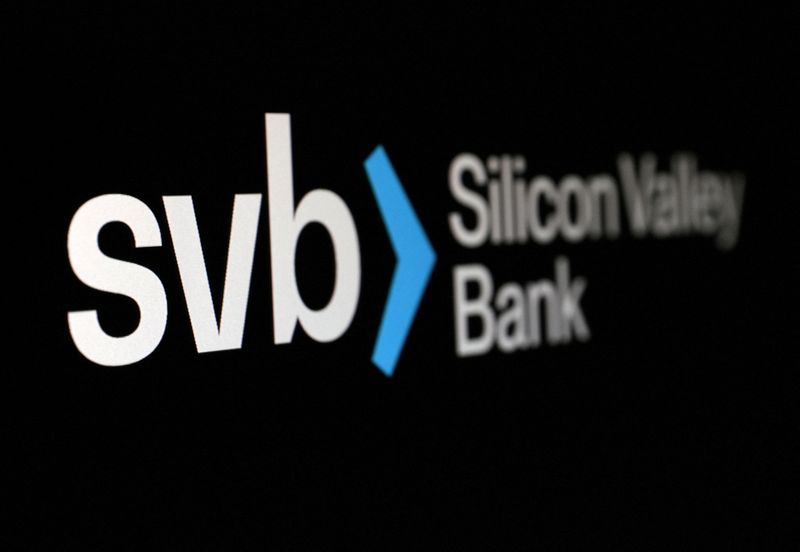By Douglas Gillison
(Reuters) - As U.S. regulators start to overhaul the way they police lenders after three banks failed this year, they will have to address examiners' hesitancy to raise red flags, a deep-seated problem that has plagued the system for years.
The Federal Deposit Insurance Corporation (FDIC) this month released its review into the demise of First Republic Bank (OTC:FRCB), the third official postmortem into the crisis which also felled Silicon Valley Bank (SVB) and New York's Signature Bank (OTC:SBNY).
Each failed following depositor runs. The postmortems on why bank managers and regulators were not able to avert disaster reveal a common theme: Federal Reserve and FDIC examiners tasked with ensuring banks follow rules and remain sound spotted major problems but acted too slowly.
Federal Reserve examiners spotted "foundational" issues with SVB's liquidity risk management in 2021 but were still drafting a disciplinary action the day it died, the Fed report found. Likewise, a 2019 FDIC notice warning Signature Bank's board about liquidity planning problems "remained outstanding" when it failed, according to the FDIC's review.
The FDIC has blamed staffing challenges and examiners' lack of urgency. The Fed has cited deregulatory zeal under former Republican President Donald Trump's administration and excessive efforts at consensus building, as well as examiner hesitancy, for delaying action. Both agencies have pledged to improve the speed and forcefulness of supervision.
However, five former bank examiners and regulatory officials told Reuters that cultural problems and structural obstacles have been embedded in the supervisory system for decades and are unlikely to be solved easily. Chiefly, examiners worry that confronting bank management with problems will spark blowback and that their bosses may not support them when that happens.
"Once you've detected the information; do you have the courage to do something?" said Charles Calomiris, a professor at Columbia Business School and former official at the Office of the Comptroller of the Currency (OCC), noting examiners worry that raising red flags will "make everybody angry."
The OCC, a third U.S. bank regulator, did not respond to a request for comment.
'PUSHBACK'
Signature Bank's management was "generally dismissive" of examiners' findings, the FDIC said. First Republic's examiners could have done more to challenge management in 2021 but "would have likely encountered pushback" because growth was strong and interest rates were low at the time, the regulator also found.
"It can be challenging to take action on banks that are seemingly healthy," said Michael Clements, a director at the Government Accountability Office (GAO), which has been calling for more timely and assertive action by bank supervisors for decades. "Managers will push back on examiners."
The Fed declined to comment. An FDIC spokesman referred to Chair Martin Gruenberg's previous comments that the problems identified at Signature Bank are "an area of urgent focus."
Examiners monitor banks and perform onsite supervision. They rate their health on a range of metrics and can instruct them to correct problems. But the work is with the rarest of exceptions strictly confidential. That means there is often little public accountability, even after something blows up.
One former supervisor in the Fed system who spoke on the condition of anonymity said examiners need, more than anything, to feel that their superiors back them. Under former Fed Vice Chair for Supervision Randal Quarles, however, the committees overseeing supervisory work raised the threshold for evidence required to support examiners' concerns, the former supervisor said.
According to the SVB report, staff said that under Quarles, a Trump appointee, they felt pressured to go easier on banks while meeting "a higher burden of proof for a supervisory conclusion."
Quarles said that this is not true and that supervisors have "always been fully supported" by Fed leadership. "I expressly encouraged examiners to focus on liquidity risk and concentration of deposit risk," he said in an email to Reuters.
Fed decision-making can be further slowed because lines of authority are decentralized and encourage excessive consensus-building, the former supervisor who spoke anonymously added, a point also supported by the SVB review. It found that the need for consensus between regional Fed banks and staff in Washington often slowed processes.
"The problem with supervision at the Fed is that it is too obsessed with process and not enough with actual risk," said Quarles.
TRIP WIRES
Michael Barr, Quarles' successor, publicly said in June that it can be hard for examiners to confront bank management in good times, and that Fed culture makes it difficult to act quickly. In May testimony, he called for a "culture that empowers supervisors to act in the face of uncertainty."
But how to get there remains an open question. Barr has floated imposing additional capital requirements when supervisors detect weak risk controls, providing an incentive for banks to act quickly.
Others say it may be more effective to take the problem of bearing bad news out of the hands of supervisors by setting automatic thresholds for enforcement action.
The GAO, for example, has in the past suggested supervisory "trip wires" or "triggers" that would require banks to take "prompt corrective action" based on factors other than capital, such as asset quality or concentration.
"If you get to that point, you simply take more forceful action, taking a little bit of discretion away," said Clements.
